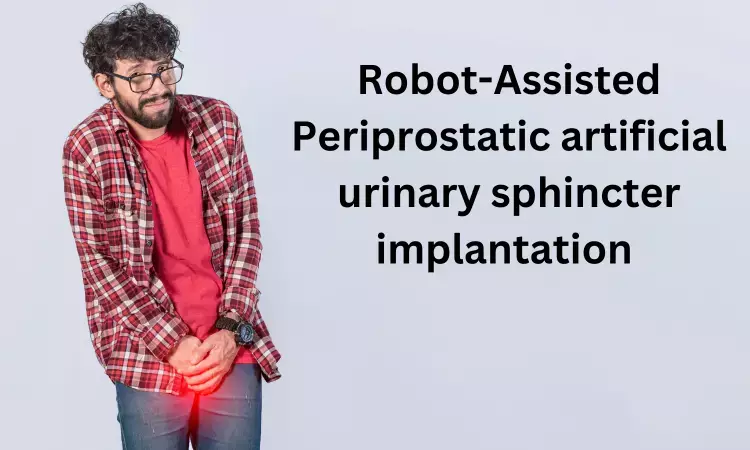- Home
- Medical news & Guidelines
- Anesthesiology
- Cardiology and CTVS
- Critical Care
- Dentistry
- Dermatology
- Diabetes and Endocrinology
- ENT
- Gastroenterology
- Medicine
- Nephrology
- Neurology
- Obstretics-Gynaecology
- Oncology
- Ophthalmology
- Orthopaedics
- Pediatrics-Neonatology
- Psychiatry
- Pulmonology
- Radiology
- Surgery
- Urology
- Laboratory Medicine
- Diet
- Nursing
- Paramedical
- Physiotherapy
- Health news
- Fact Check
- Bone Health Fact Check
- Brain Health Fact Check
- Cancer Related Fact Check
- Child Care Fact Check
- Dental and oral health fact check
- Diabetes and metabolic health fact check
- Diet and Nutrition Fact Check
- Eye and ENT Care Fact Check
- Fitness fact check
- Gut health fact check
- Heart health fact check
- Kidney health fact check
- Medical education fact check
- Men's health fact check
- Respiratory fact check
- Skin and hair care fact check
- Vaccine and Immunization fact check
- Women's health fact check
- AYUSH
- State News
- Andaman and Nicobar Islands
- Andhra Pradesh
- Arunachal Pradesh
- Assam
- Bihar
- Chandigarh
- Chattisgarh
- Dadra and Nagar Haveli
- Daman and Diu
- Delhi
- Goa
- Gujarat
- Haryana
- Himachal Pradesh
- Jammu & Kashmir
- Jharkhand
- Karnataka
- Kerala
- Ladakh
- Lakshadweep
- Madhya Pradesh
- Maharashtra
- Manipur
- Meghalaya
- Mizoram
- Nagaland
- Odisha
- Puducherry
- Punjab
- Rajasthan
- Sikkim
- Tamil Nadu
- Telangana
- Tripura
- Uttar Pradesh
- Uttrakhand
- West Bengal
- Medical Education
- Industry
Robotic surgery effective in treating Neurogenic Stress Urinary Incontinence among Men

Urinary incontinence is a serious problem as it affects ones quality of life to a greater extent. Artificial urinary sphincter (AUS) implantation is most recommended and is considered the gold standard treatment for stress urinary incontinence (SUI) in men with neurogenic sphincter insufficiency. Recent studies have shown Periprostatic artificial urinary sphincter implantation (pAUSi) is a rare yet relevant indication for male neurogenic SUI.
A new study in European Urology aimed to describe the surgical technique of robot-assisted pAUSi (RApAUSi) and compare the long-term functional results with the open pAUSi (OpAUSi). The study found that RApAUSi was an better alternative to OpAUSi, resulting in shorter operative times, less blood loss, fewer severe complication. Compared with open periprostatic artificial urinary sphincter implantation (pAUSi), robot-assisted pAUSi leads to faster recovery and similar functional results.
Researchers conducted a retrospective study and collected data of 65 consecutive men with neurogenic SUI undergoing pAUSi between 2000 and 2022 in a tertiary centre. The surgical procedure included thirty-three patients who underwent OpAUSi and 32 underwent RApAUSi. OpAUSi cases were performed by a single surgeon, experienced in functional urology and prosthetic surgery. RApAUSi cases were performed by the same surgeon together with a second surgeon, experienced in robotic surgery. Researchers looked for outcome measures such as complete urinary continence, intra- and postoperative complications, and surgical revision–free survival (SRFS).
The key findings of the study are
• RApAUSi showed superior results to OpAUSi in terms of median (interquartile range) operative time (RApAUSi: 170 [150–210] min vs OpAUSi: 245 [228–300] min; p < 0.001).
• Estimated blood loss (RApAUSi: 20 [0–50] ml vs OpAUSi: 500 [350-700] ml; p < 0.001), and median length of hospital stay (LOS; RApAUSi: 5 [4–6] d vs OpAUSi: 11 [10–14] d; p < 0.001).
• Clavien-Dindo grade ≥3a complications occurred more frequently after OpAUSi (RApAUSi: 1/32 [3%] vs OpAUSi: 10/33 [30%]; p = 0.014).
• Achievement of complete urinary continence (zero pads) was comparable between the groups (RApAUSi: 24/32 [75%] vs OpAUSi: 24/33 [73%]; p = 0.500).
• The median follow-up periods were 118 (50–183) and 56 (25–84) mo for OpAUSi and RApAUSi, respectively (p < 0.001).
• A tendency towards longer SRFS was observed in the RApAUSi group (p = 0.076). The main study limitation was its retrospective nature.
Researchers concluded that “RApAUSi is an efficient alternative to OpAUSi, resulting in shorter operative times, less blood loss, fewer severe complications, and a shorter LOS with similar functional results and need for revision surgery.”
Reference: Edward Lambert, Emmanuel Chartier-Kastler et al; Robot-assisted Periprostatic Artificial Urinary Sphincter Implantation in Men with Neurogenic Stress Urinary Incontinence: Description of the Surgical Technique and Comparison of Long-term Functional Outcomes with the Open Approach; European Urology, https://doi.org/10.1016/j.eururo.2023.09.025
MSc. Neuroscience
Niveditha Subramani a MSc. Neuroscience (Faculty of Medicine) graduate from University of Madras, Chennai. Ambitious in Neuro research having worked in motor diseases and neuron apoptosis is interested in more of new upcoming research and their advancement in field of medicine. She has an engrossed skill towards writing and her roles at Medical dialogue include Sr. Content writer. Her news covers new discoveries and updates in field of medicine. She can be reached at editorial@medicaldialogues.in
Dr Kamal Kant Kohli-MBBS, DTCD- a chest specialist with more than 30 years of practice and a flair for writing clinical articles, Dr Kamal Kant Kohli joined Medical Dialogues as a Chief Editor of Medical News. Besides writing articles, as an editor, he proofreads and verifies all the medical content published on Medical Dialogues including those coming from journals, studies,medical conferences,guidelines etc. Email: drkohli@medicaldialogues.in. Contact no. 011-43720751


